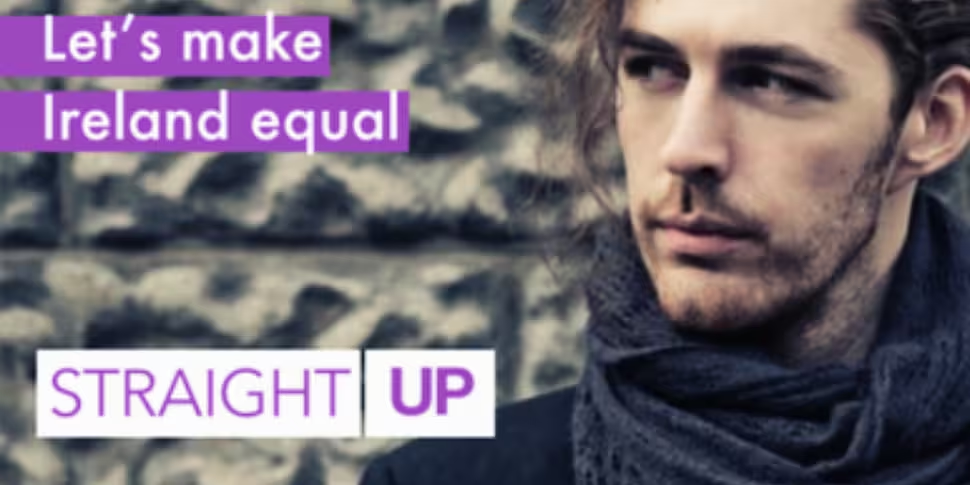Sometimes Ireland feels like we're living the 1950s in reverse. If it was bishops telling people how to vote in a referendum 60 years ago, new high priests have emerged to take their place in the guise of celebrities and tech giants. The unprecedented decision this week by social network Twitter to interfere in the forthcoming referendum on same-sex marriage and urge a 'yes' vote in incredible. Think about it for a second: a multi-national corporation is telling Irish people what way to vote.
Of course, there's little controversy since same-sex marriage is a fairly popular cause amongst journalists and liberally-minded people, even Taoiseach Enda Kenny turned out in support of Twitter's intervention in the democratic process. But, make no mistake: a dangerous precedent has been set when large corporations - who at the end of the day are only motivated by profit-making - see fit to enter the political sphere.
Celebrities - from A to Z-list - have also been lining up to lend their support to the campaign, as if being able to kick a football or hold a tune makes one an expert on whether or not marriage as it is currently understood should be legally redefined.
When I was studying philosophy in university, we all knew that the 'appeal to authority' argument (be in clerical or celebrity) was really a fallacy. And fallacies are like junk food: at first glance they seem appealing, but it soon becomes evident that there's no substance.
Inevitably, some voters will be swayed by what celebs and tech giants have to say about the meaning of marriage. More thoughtful voters, however, will weigh up the particular arguments for and against same-sex marriage rather than vote in a particular way because someone has told them to.
I'll be voting 'no' on May 22nd. It's not because I'm part of an "architecture of homophobia" to quote former president Mary McAleese in reference to the Catholic hierarchy, it's because I passionately believe in the uniqueness of marriage as a relationship between one man and one woman. Of course, my decision to vote 'no' has brought all kinds of abuse and bile: I've been called a bigot, hate-filled, a dinosaur and even described as an "evil bastard" on social media. My usual reaction? Save the name-calling and insults for people who care what others think of them!
Supporters of gay marriage, understandably, want the debate to be merely about equality. Understandably, I say, because who could be against equality? But, the truth is, the debate about same-sex marriage at its heart is a debate about how highly we value mams and dads and whether we think the complementarity of men and women, especially as mothers and fathers, should be embodied in a special and distinct social institution.
People often ask, "what harm would it do if we allow two men or two women to marry one another?" But the harm is in the outright denial by proponents of same-sex marriage that there is any added value in children having a loving mother and father.
In the name of 'tolerance' and 'equality' Irish people are being asked to abandon the notion that motherhood and fatherhood are complementary roles of special value to children and society.
Same-sex marriage supporters don't only want to make marriage gender neutral. They want to make parenthood gender neutral.
They want us to agree that marriage should be for any two people who love each other, regardless of gender, and that having two loving parents is just the same as having a loving mother and father.
These two demands are inseparable. You can't have one without the other and they amount to an outright denial of sexual complementarity.
While same-sex marriage proponents can hardly deny that there are two sexes, they emphatically deny that they are complementary in any significant way, least of all from the point of view of children.
Supporters of same-sex marriage insist that they are discriminated against because they can't marry. But is it really discrimination to create a social institution which recognises that the two sexes are distinct and different and complementary, and then another legal structure for other kinds of relationships?
The question before voters on May 22 is a simple one: do they believe that there are real and complementary differences between men and women and mothers and fathers, and if so, do they really believe it is unjust discrimination to have a special social institution which embodies these differences?
I'm not going to tell people how to vote: each citizen should pause for thought and be wary of the same rush to group-think that saw an overheated property market - cheered on by journalists, economists and politicians - bring the country to its knees. As for celebs, best they stick to the day job. In a culture where everyone thinks alike, few people think at all.
Michael Kelly is Editor of 'The Irish Catholic' www.irishcatholic.ie and on Twitter @MichaelKellyIC









